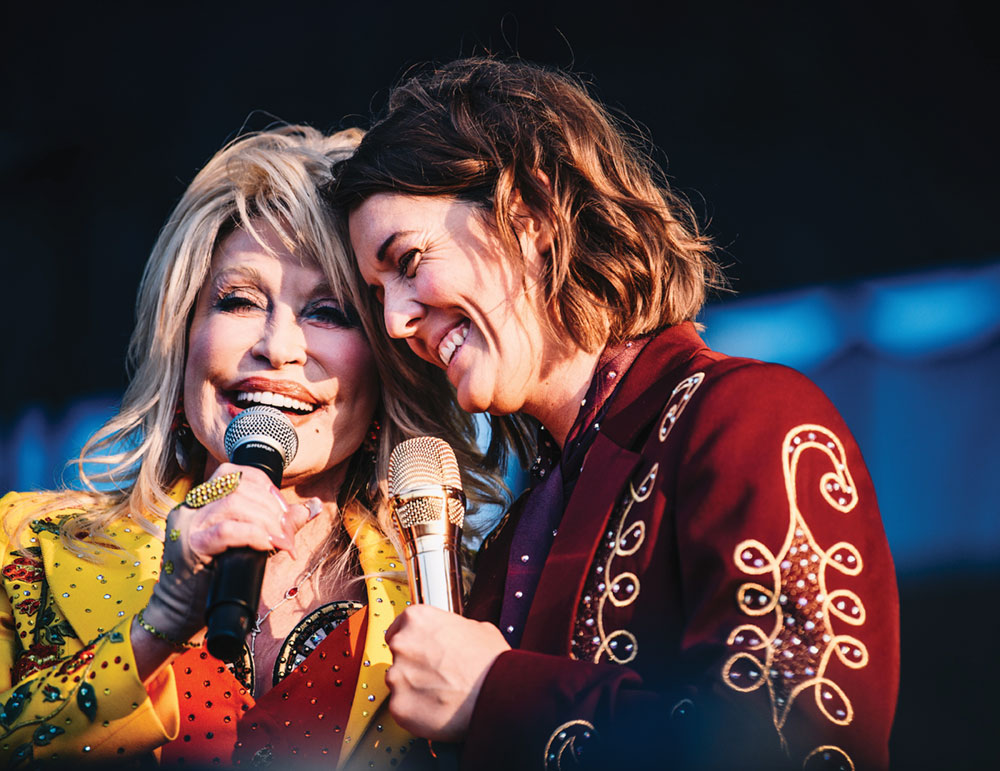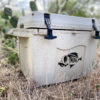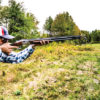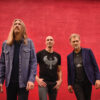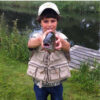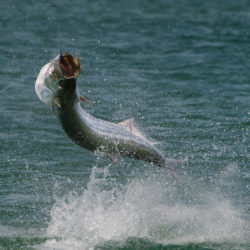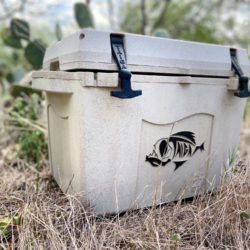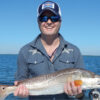The music world lost one of its cherished folk gods on April 7, 2020, when American singer-songwriter and master storyteller John Prine died from complications related to the coronavirus. He was 73 years old.
Other musicians have lost their lives to COVID-19. There’s another harsh reality—it’s next to impossible for living musicians to make a living during the pandemic. They suffer a separate and lonely economic crisis of their own.
“Unless you’re in the top one percent of the one percent of the music world, it’s difficult to earn money as a musician right now,” says Jay Sweet, executive producer of the Newport Folk and Jazz Festivals, and executive director of its nonprofit Newport Festivals Foundation (NFF). “Touring and album releases have been cancelled, and so have music festivals. The coronavirus took away live music, and these artists don’t have unemployment benefits and health insurance. They need help.”
Sweet knows the music business. Prior to producing the Newport Festivals and running its foundation, he ran his own music consulting company and worked as a music supervisor in the movies. He’s also the former editor of Paste, a music and entertainment magazine.
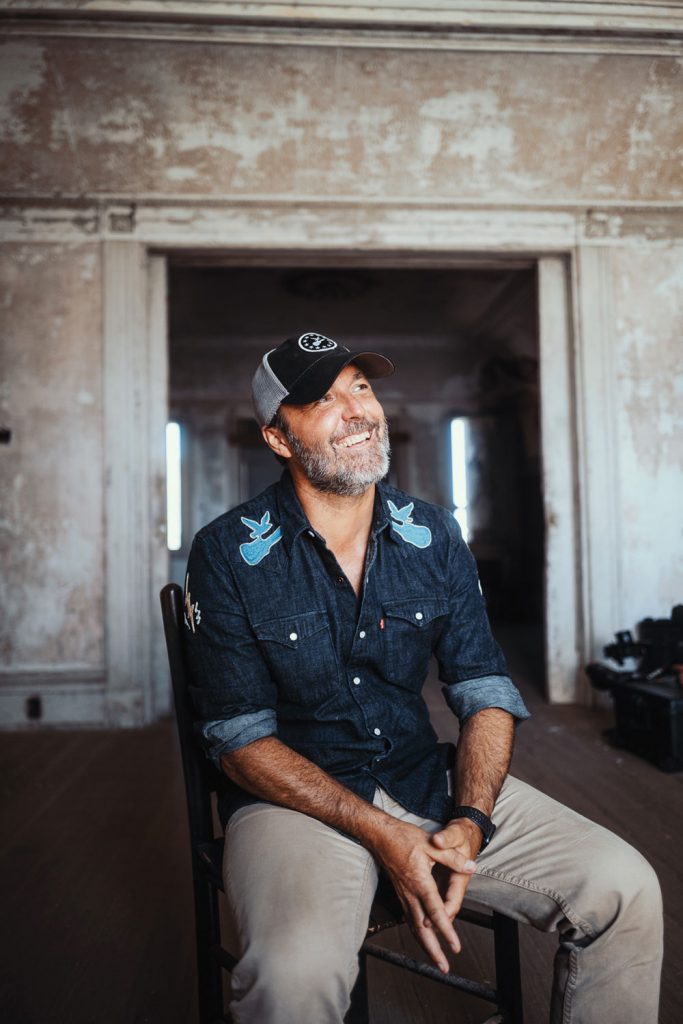
Jay Sweet, executive producer of the Newport Folk and Jazz Festivals, and executive director of the NFF, is on a mission to save music. Photo courtesy of Newport Festivals Foundation.
“As a kid I was obsessed with music, and fortunately my dad had an amazing record collection. He let me rearrange albums, and many had “Live at Newport” on the covers. Jazz, blues, Motown and rock n’ roll. Johnny Cash, Bob Dylan, Kris Kristofferson, Wilson Pickett and the Grateful Dead—these were some of the musicians whose songs became hymns for me. Music was my religion—and songs like ‘Uncle John’s Band’ were in my hymn book.”
In 2007, Festival Network, a New York-based outfit that purchased the Newport Festivals from legendary festival founder George Wein, hired Sweet as a consultant. Two years later, the Rhode Island Department of Environmental Management, which oversees Fort Adams State Park in Newport, where the festivals are held, voided the contract with the Festival Network. Wein quickly regained control of the festivals and retained and appointed Sweet as his successor.
“George Wein really trusted Jay, who helped him buy the festivals back,” says Newport Festivals Foundation Publicity Director Meghan Helsel. “Jay’s the former editor of Paste, and he’s a creative guy who really brought an editor’s eye to the festivals. Plus, he knew a lot about emerging folk, Americana and indie-rock musicians. George wasn’t familiar with these genres and some of the budding talents. So, this move turned out to be a great fit.”
2019 marked the Newport Folk Festival’s 60th anniversary since it debuted in 1959. The Newport Jazz Festival preceded its companion event by five years and was introduced in 1954. The NFF fosters the legacy and expands the impact of its festivals by supporting music education programs year-round, across the country. It relies on the money it makes each year at the festivals to carry out its work. Both festivals were cancelled in 2020 because of the coronavirus.
“As devastating as it is to write these words, it’s balanced with a renewed sense of, well, ‘Hope,’” Sweet said in a foundation press release. “It’s Rhode Island’s motto for good reason, and it’s also the feeling our festival family constantly exudes when we come together in good times and perhaps more importantly, in difficult times. This community is truly unlike any other in music, and I believe we can emerge from this adversity stronger and more connected than ever before.”
The NFF responded to the devastating toll COVID-19 has taken on independent musicians by creating the Newport Festivals Musician Relief Fund, which provides financial relief to musicians in the folk and jazz communities experiencing a loss of income as a result of the pandemic. The fund’s Revival grant is a one-time grant between $500 and $3,000 for artists to create educational content in partnership with NFF. Content is sent free of charge to music education programs. The Micro Grant is a one-time grant between $300 to $500 to cover a musician’s immediate financial concerns.
Giving is already built into the NFF’s model. For each artist on either festival’s lineup, the foundation makes a donation on the artist’s behalf to an organization of their choosing before they hit the stage at Fort Adams. Last year, NFF provided financial relief to more than 450 musicians impacted by the pandemic. It also awarded more than 100 grants for music education programs nationwide.
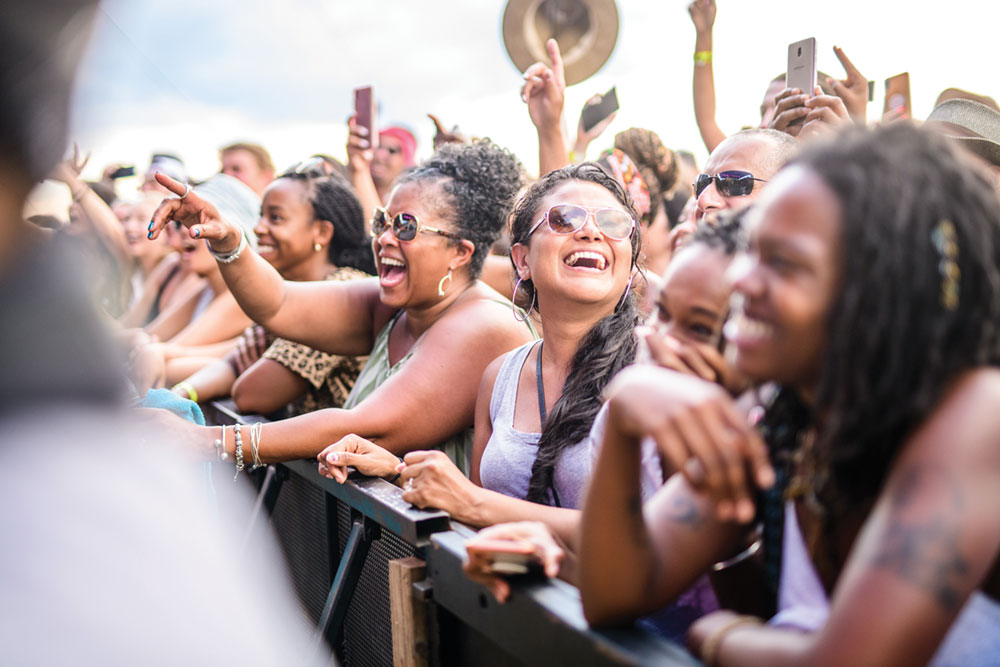
“We believe every person deserves access to music education, regardless of socioeconomic status,” adds Helsel. “Numerous studies have shown that music education helps develop communication skills, improve test scores and build confidence. By supporting music education initiatives across the country through our Artist Gives Program, we’re empowering students to reach their full potential and preserving the genres of jazz and folk music.”
Helsel acknowledged the NFF made several grants to local music education programs in Central Virginia. One was awarded to Charlottesville’s Music Resource Center on behalf of Ed O’Brien, English guitarist and member of the rock band Radiohead. The Music Resource Center’s Musicians United to Serve the Youth of Charlottesville provides affordable music and dance after-school enrichment and education to Charlottesville-area students in grades six through 12.
Another grant was awarded to the Harrisonburg High School Band on behalf of Harrisonburg-based indie-rock duo Illiterate Light. Singer-guitarist Jeff Gorman and drummer Jake Cochran have been playing music together since they met at James Madison University. The donation underwrote scholarships for students—from band camp for rising ninth graders and current high school students to college scholarships for seniors leaving for universities.
The NFF also awarded a grant to JAMinc on behalf of acclaimed Richmond singer-songwriter Lucy Daucus. JAMinc brings professional musicians into public schools in Virginia to conduct assemblies, workshops and tutorials. The donation was used to underwrite the instructor fees JAMinc provides each artist.
“Live music is a connector, and it brings people together to be present for a shared, collective experience—a singular feeling,” Sweet says. “That’s the gift of music. Think about it. At one point, our ancestors beat bones on animal hides to create music. It was the very first thing humans did that wasn’t critical for survival.”
According to Sweet, hip-hop emerged after the New York City Department of Education cut music education from the public-school budget.
“So what did the kids in Brooklyn, the Bronx and Queens do after school? They raided their parents record collections and started sampling over spinning records. Rapping was cheap and creative, and within three years those kids basically replaced R&B with massive hip-hop sales. My point is, when you cut music education funding, things change. I love hip-hop, but now with today’s computers and technology, I’m worried true musicianship is going to end. If you love music, help us save it.”
For Sweet, church doesn’t mean religion. Common community is what religion is all about. And live music is the great connector that fosters community. The pandemic has wreaked havoc on musicians and what they’re able to build with their talents. If you share this religion, the time is now to say a prayer and support music education.
To learn more and make a gift, visit www.newportfestivals.org.
Joe Shields is the editor in chief of The Virginia Sportsman. He is a writer and marketing executive based in Charlottesville, Virginia. His writing and photography have appeared in The Virginia Sportsman and other publications. He is also a gallery-represented artist whose work is found in private collections and several galleries in Virginia. Whether fly fishing or surfing, drawing or painting, he celebrates sporting life and culture in his narratives and art.
Cover photo: Dolly Parton and Brandi Carlile entertain fans at the 2019 Newport Folk Festival. Photo courtesy of Newport Festivals Foundation.

